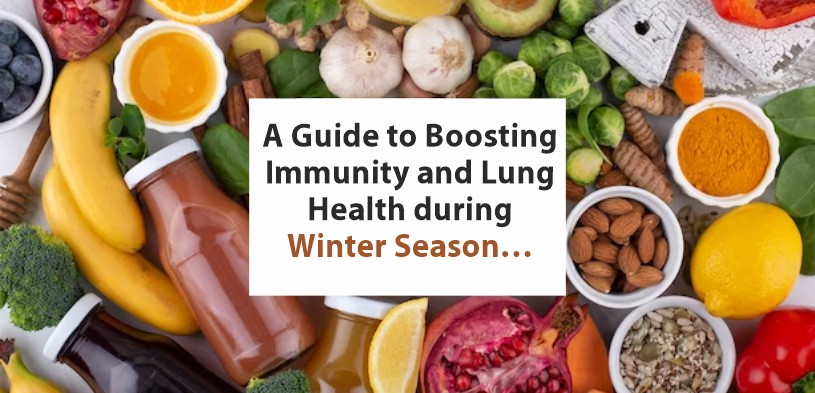As the winter breeze envelopes us, it brings not just the joy of holidays but also a reminder of the health challenges that come with the season. Pneumonia, a respiratory menace, tends to peak during this time, especially affecting those with compromised lung health or underlying conditions. However, fear not, for a robust defense begins with lifestyle changes and a focus on nourishing our bodies. In this guide, we unravel the secrets to winter well-being, offering insights into what to eat during winter to fortify your immunity and protect your lungs.
Understanding the Winter Pneumonia Risk
Winter’s chilly embrace can catch us off guard, making us susceptible to respiratory infections like pneumonia. Individuals with conditions such as COPD, asthma, or compromised immunity face a doubly heightened risk. Pneumonia, an inflammatory condition affecting the air sacs in the lungs, becomes more prevalent in the colder months. The close confines of indoor living during winter facilitate the easy transmission of germs, escalating the chances of contracting the disease.
Recognizing Pneumonia Symptoms
Before we delve into preventive measures, let’s understand the symptoms of pneumonia. Chest discomfort, persistent coughing, lethargy, chills, fever, and difficulty breathing are key indicators. Recognizing these signs early on is crucial for timely diagnosis and treatment, preventing the onset of potentially deadly complications.
The Impact of Lifestyle on Pneumonia Recovery
Our lifestyle plays a pivotal role in determining how resilient our bodies are against infections. Unhealthy habits such as stress, poor diet, and lack of sleep weaken our immune defenses, making us more susceptible to diseases like pneumonia. For those leading a sedentary lifestyle, pneumonia can pose even more significant challenges, potentially leading to delayed recovery and complications.
Guiding Principles for Winter Wellness
Nutrient-Rich Diet:
- Include seasonal fruits, garlic, and yogurt in your diet to boost immunity and inhibit bacterial growth associated with pneumonia.
- Emphasize the importance of a well-rounded diet abundant in fruits, whole grains, and vegetables.
Regular Physical Activity:
- Engage in routine physical activity, such as a brisk 30-minute walk or light aerobic exercises, to improve lung capacity and overall health.
- Breathing exercises complement physical activity, enhancing respiratory function.
Adequate Sleep:
- Ensure a minimum of 8 hours of restful sleep, as sleep is crucial for the body’s renewal and immune system reinforcement.
- Chronic stress weakens the immune system, making adequate sleep even more essential.
Mindfulness and Stress Management:
- Cultivate brief mindful pauses throughout the day, redirecting your focus to the present moment. These moments can be as simple as appreciating your surroundings or taking a few deep breaths.
- Integrate mindfulness into physical activities like yoga or tai chi. Focus on the sensations of movement, fostering a mind-body connection that eases stress and promotes well-being.
Hydration:
- Ensure a steady intake of water throughout the day. Sipping water consistently helps maintain optimal bodily functions, including those related to respiratory health.
- Include water-rich foods such as cucumbers, celery, and melons in your diet. These contribute not only to hydration but also offer additional vitamins and minerals for overall health.
Tips for Specific Groups
Elderly Individuals:
- Prioritize a healthy routine, including a balanced diet, regular exercise, and sufficient sleep.
- Quit smoking, as it significantly increases the risk of pneumonia.
Children:
- Adhere to vaccination schedules as advised by experts, including flu vaccinations.
- Practice good hand hygiene and avoid crowded areas or contact with sick individuals.
Nurturing Winter Well-Being
In navigating the effects of winter, particularly the heightened risk of pneumonia, embracing a holistic approach is key. By adopting these lifestyle changes and incorporating preventive measures, we not only fortify our defenses against respiratory infections but also promote overall well-being. Let’s make this winter a season of health, resilience, and joy, safeguarding ourselves and our loved ones with informed choices and nurturing habits. Stay warm, stay well!








